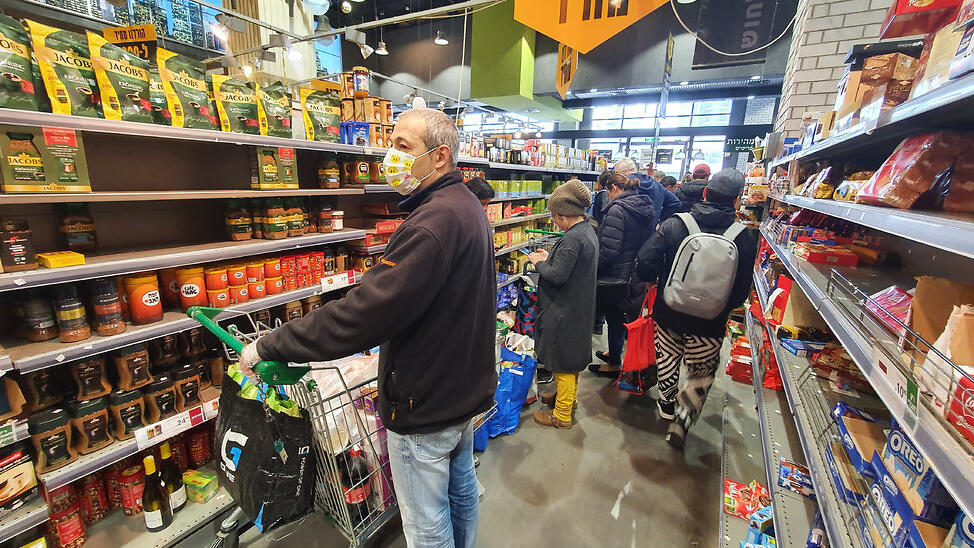In recent days, there have been numerous articles pointing to the annual report of the Organization of Developed Countries (OECD) published at the beginning of August, which said that Israel was allegedly the "most expensive" country in 2022 out of all its member countries. To understand if this is really the case and if it is even possible to compare the different countries when it comes to the cost of living, Ynet spoke on Tuesday on "New Money", Ynet's daily economic podcast, with Itai Ater, professor of economics at Tel Aviv University, a senior fellow at the Israel Democracy Institute.
Read more:
The way to calculate the data in the table in question is to take a basket of products and try to make it similar among the different countries," Ater explained. "So, we took a representative basket of products in Israel and bought it in shekels, and let's say it cost us 300 shekels to buy the basket, then we bought a similar basket in other European countries and checked how much it costs to buy the same basket. That is, if the dollar is worth three shekels, then 300 shekels are $100, and then they compare where Israel is in relation to other countries."
If you look at the year 2022, to which the report refers, you see that the dollar exchange rate was relatively low, so when we divided these 300 shekels by an average of 3.2 shekels - let's say - then it turned out that a lot of dollars were needed to buy this basket. What will happen in 2023, now that the dollar is soaring? Suddenly we found that the basket costs fewer dollars. Apparently, what will happen this year is that our situation will 'improve', absurdly," he explained.
Ater also said: "The index is not successful because of its reliance on the dollar exchange rate. You can see this absurdity in the housing market in this context already, how the deterioration we see (in the market) and how the situation is more difficult at times, is somehow translated by those who want it as 'improvement'."
At the same time, Ater added, "I do think that it is necessary to look at the prices in Israel, that there is an agreement that they are high, and to think about how to deal with this problem and make the prices cheaper and less to worry about whether we are number three, two or five" in the OECD.
Another aspect that is significant in the context of the comparison of the cost of living among the different countries, is the salary levels in each country. "If I earn 5,000 (shekels) then it is easier for me to buy this basket for 300 shekels than if I only earn 2,000," Ater explained. "Therefore, in the work done last year at the Israel Democracy Institute led by Professor Karnit Flug , they checked it and tried to see where Israel stands using this comparison. When we standardize the cost of the basket in relation to salary, we accept that Israel is still not in a good situation - but not bad either."
Moreover, he added that "in the last 12 years there has been an improvement in this index. The real wage (in Israel) has improved and even if the prices have risen, or have risen a little, the real wage has improved more than the prices have risen. At the same time, if we look at the 2022 data, Israel is in the region of Italy and Lithuania, which is about 13th place from the end. That is, if the OECD has about 38 countries, then Israel is in 26th-25th place. That is - even according to this index (of the Israel Democracy Institute) - expensive - although not as bad as shown in the OECD index."


